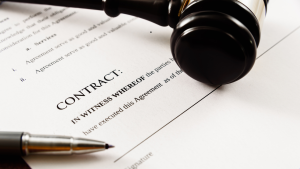Can Someone Sue You After insurance Pays?
Understanding Legal Risks and Protections
Introduction
When an insurance company settles a claim, many policyholders assume that the matter is closed. However, in some cases, you can still be sued even after your insurance provider has paid out a claim. This article will explore the legal nuances surrounding post-insurance lawsuits, including liability issues, policy limitations, and how to protect yourself from additional legal actions.
How Insurance Claims Work
Insurance policies, such as auto, home, business, and professional liability insurance, are designed to provide financial protection when an accident or claim arises.
The process typically follows these steps:
Incident Occurs
An accident, injury, or property damage leads to a claim.
Filing a Claim
The insured reports the incident to the insurance company.
Investigation
The insurer investigates to determine liability and damages.
Settlement
If covered, the insurer pays out a settlement to the claimant.
Release Agreement
In many cases, the claimant signs a release agreeing not to pursue further legal action.
Despite this structured process, there are scenarios where a lawsuit may still be filed against the insured individual.
Situations Where You Can Still Be Sued
Even after an insurance payout, there are several legal situations where you may face additional lawsuits:
The Settlement Did Not Cover the Full Amount
Insurance policies have coverage limits. If the damages exceed these limits, the injured party may sue you for the remaining balance.
Bad Faith Insurance Practices
If the insurance company unfairly denies or undervalues a claim, the claimant may decide to sue you personally to recover additional damages.
Punitive Damages
Some lawsuits seek punitive damages, which are designed to punish reckless or intentional wrongdoing. Most insurance policies do not cover punitive damages, leaving you financially exposed.
Multiple Parties Involved
If an accident involves multiple injured parties and your insurance only covers a portion of the damages, you might be sued for any outstanding balance beyond your coverage.
Legal Loopholes and Exclusions
Insurance policies have exclusions. If the insurer determines that a particular incident is not covered, the claimant can file a lawsuit directly against you.
Breach of Contract Cases
In business-related claims, if an insurance payout does not fulfill contractual obligations, another party may take legal action against you.

How to Protect Yourself from Additional Lawsuits
Adequate Insurance Coverage
Make sure your insurance policy limits are sufficient for your risk level. Consider umbrella insurance for additional protection beyond standard policy limits.
Legal Representation
If you are sued after an insurance settlement, consult a legal professional. Many insurance policies include legal defense coverage, so check your policy details.
Understand Release Agreements
Ensure that any settlement agreement includes a liability release clause that prevents the claimant from pursuing further legal action against you.
Document Everything
Maintain records of the claim, including reports, emails, settlement agreements, and any legal documents to defend yourself in case of future litigation.
Negotiate Higher Policy Limits
If you are in a high-risk profession or own significant assets, consider increasing your policy limits to prevent lawsuits that could target your personal finances.
Seek Alternative Dispute Resolution (ADR)
If a lawsuit is filed, mediation or arbitration may help resolve disputes outside of court, potentially reducing financial and legal burdens.
Types of Insurance That Can Protect You
Auto Insurance
Covers liability in car accidents, but may not cover lawsuits beyond policy limits.
Homeowners Insurance
Protects against property damage and injuries but excludes business-related claims.
General Liability Insurance
Common for businesses to protect against lawsuits related to injuries or damages.
Professional Liability Insurance
Helps professionals like doctors and lawyers defend against malpractice lawsuits.
Umbrella Insurance
Provides extra liability coverage beyond other policies.
Even after an insurance company pays out a claim, lawsuits can still occur. Understanding your policy limits, negotiating strong settlements, and taking legal precautions can help minimize financial and legal risks. If faced with a lawsuit after an insurance payout, seeking legal counsel and reviewing your coverage options is essential to protecting yourself from further liability.
Frequently Asked Questions (FAQ)
Can a Lawsuit Be Reopened After Settlement?
In general, once a settlement agreement has been signed and funds have been paid, the lawsuit is considered resolved. However, there are rare circumstances where a lawsuit can be reopened after a settlement. This could happen if there was fraud or misrepresentation during the settlement process, or if new evidence comes to light that could substantially change the case. For example, if you were coerced into signing the settlement or if the terms of the settlement were not fully understood, you might have grounds to reopen the case. In the U.S., this would typically require court approval and may involve a lengthy legal process.
Can an Insurance Company Sue You for an Accident?
Yes, an insurance company can sue you for an accident under certain circumstances. If your actions lead to a claim being paid out and the insurance company believes they have overpaid or paid for damages they are not legally obligated to cover, they may pursue legal action to recover the funds. This is known as subrogation. For example, if an insurance company pays for damage caused by an accident that you were responsible for, they might sue you to recover the money if they believe the payment was made in error or if you did not have the proper coverage to cover the damages.
Can Someone Sue You for a Car Accident if You Have Insurance?
Yes, someone can still sue you for a car accident even if you have insurance. Your car insurance, typically liability insurance, will cover damages up to the policy limit. However, if the damages or injuries exceed the coverage limits, the injured party can pursue a personal lawsuit against you for the remaining amount. For example, if your insurance covers $100,000 in damages, but the total damages amount to $150,000, the other party may sue you personally for the remaining $50,000.

Still in Pain After Settlement: Can I Take Legal Action?
If you are still in pain after agreeing to a settlement, it is generally difficult to reopen the case. Settlements are usually made with the understanding that both parties are releasing future claims related to the incident. However, if your injuries were not fully resolved or were misrepresented at the time of the settlement, you may have the option to seek additional compensation under certain circumstances, such as discovering an injury that was not initially diagnosed. In California, for example, there are legal options for seeking further damages under certain circumstances, but they typically require proving that the pain and injuries were ongoing and related to the original incident.
What Happens After You Agree to a Settlement?
Once you agree to a settlement, the case is typically closed, and you are legally bound by the terms of the settlement. In exchange for agreeing to the settlement, you will usually sign a release form stating that you will not pursue further legal action regarding the incident. The settlement amount will be paid to the claimant or to you, depending on the nature of the agreement. Once the settlement is paid, both parties usually move on, and the legal matter is considered resolved. However, as previously discussed, there can be exceptions, especially if there is a violation of the settlement terms or if fraud is involved.
Can Someone Sue You After Insurance Pays in California?
Yes, it is possible for someone to sue you even after insurance pays in California. California law allows individuals to pursue lawsuits for damages even if insurance has been involved, particularly in cases of excessive damages or if the injury is not fully covered by insurance. Additionally, if you were grossly negligent or acted recklessly, the injured party may pursue a claim for punitive damages, which are not covered by most insurance policies. As a result, even if the insurance company pays for the primary damages, the injured party can still seek further compensation through the courts.
Can I Sue My Attorney After Settlement?
Yes, it is possible to sue your attorney after a settlement if you believe they did not act in your best interest or if you were not fairly represented during the process. This type of legal action is generally referred to as legal malpractice. Common reasons for suing an attorney after a settlement include failure to investigate the case adequately, failure to advise you properly, or negligence in handling your legal matters. If you feel that the settlement amount was unfair due to your attorney’s actions or negligence, you may have grounds to file a legal malpractice suit.
Can Someone Sue You if You Have Car Insurance?
Yes, even if you have car insurance, someone can still sue you for damages. Car insurance typically covers liability, which means it pays for damages caused by your negligence. However, if the damages or medical expenses exceed your policy limits, the injured party may take legal action against you to recover the remaining amount. Additionally, if the injury was severe or involved special circumstances, the individual might pursue punitive damages, which are not covered by most car insurance policies.






